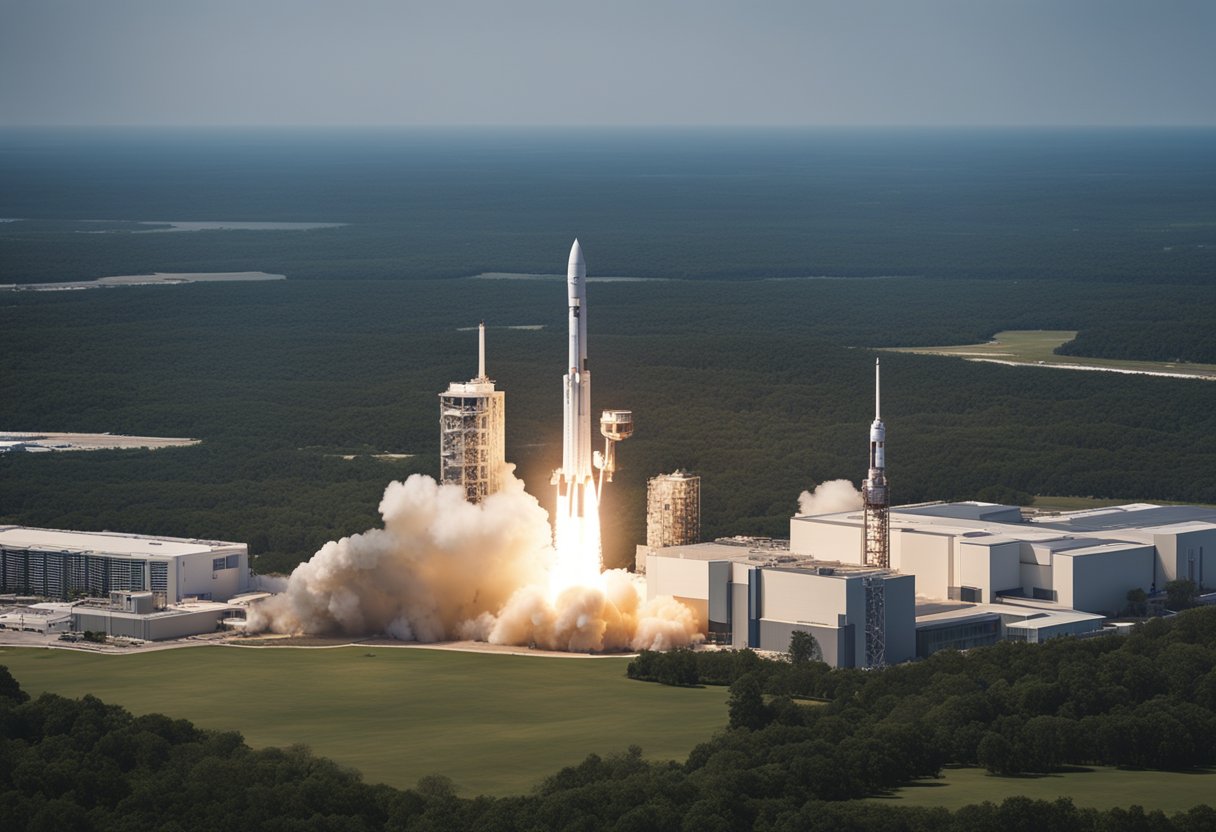
The economic impact of space exploration extends well beyond the thrill of reaching new frontiers in outer space. Our investment in the voyage to the stars has brought tangible financial benefits on Earth. The emergence of the space industry, including satellite communications, GPS technologies, and recent advancements in space tourism, has contributed significantly to economic growth on a global scale. Companies specialising in this sector are fuelling industrial development and creating new manufacturing opportunities.

Our ventures into space have also sparked profound advancements in science and technology that ripple throughout numerous industries. This surge in innovation is not limited to aerospace; it spills over into sectors such as agriculture, where satellite imagery aids precision farming, and into medicine where technologies developed for space missions enhance medical imaging. Furthermore, the push for space exploration has led to the development of a highly skilled workforce, bolstered by educational programmes aimed at meeting the growing demand for expertise in STEM fields.
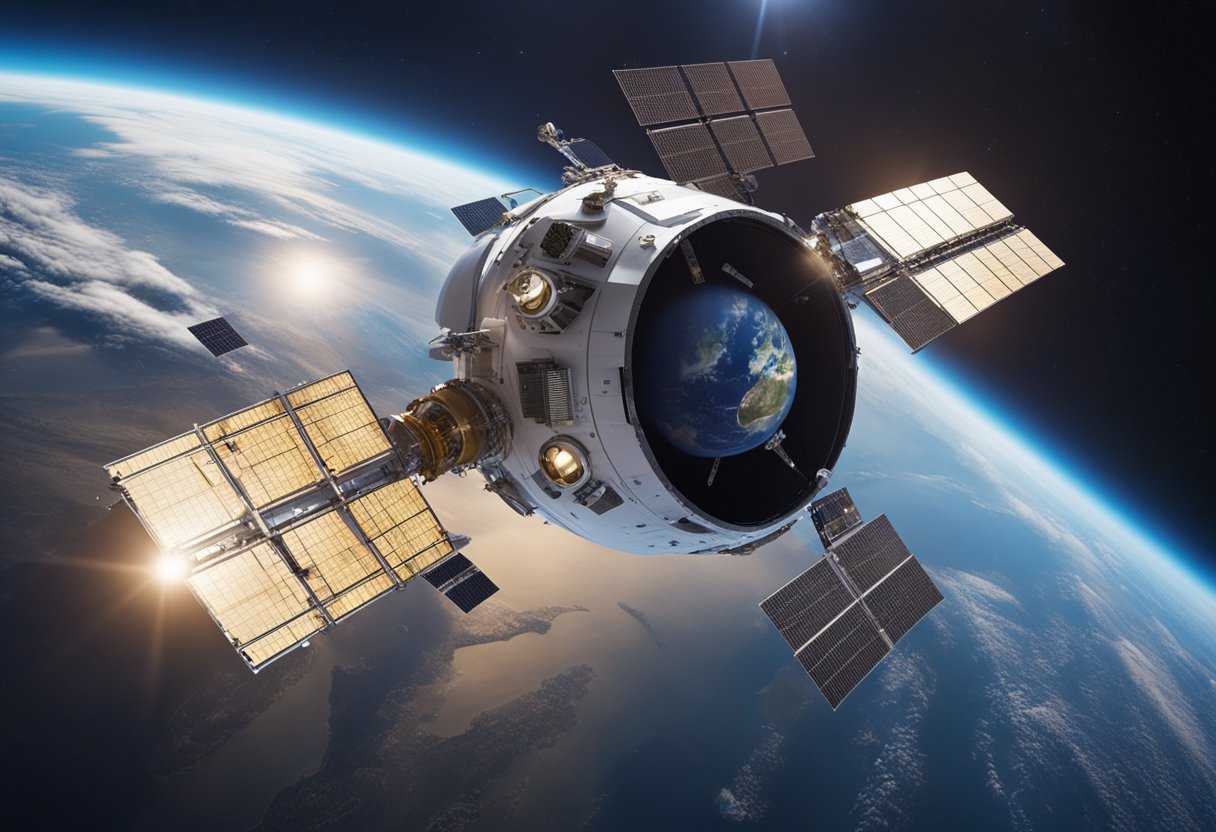
Space exploration’s economic impact has evolved significantly since its inception, influenced by the substantial investments made by national space agencies and the ripple effects of technological advancements.
In the historical journey of space exploration, the founding of national space agencies marks a fundamental shift. The establishment of NASA in 1958 was a decisive moment, solidifying the United States’ commitment to astronautics and its broader economic ambitions. Over the years, NASA has been pivotal in coordinating space missions, developing technology, and fostering international cooperation, exemplified by the International Space Station (ISS). In 2024, our attention turns towards emerging enterprises, such as SpaceVoyageVentures.com, which indicate a burgeoning interest in space tourism, potentially opening new economic frontiers.
Our exploration chronicle is punctuated by a series of milestones that have pushed the limits of our capabilities. The Moon landings stand as a testament to human ingenuity and the potential for economic expansion beyond Earth. Currently, we are poised to witness the Artemis Program paving the way for a sustained human presence on the Moon and beyond. The evolution of space flight continues to shape the economic landscape, influencing sectors from manufacturing to education. With the continuing operation and utilisation of the ISS, we see ongoing opportunities for research that can translate into economic benefits.
In this section, we shall explore how the burgeoning space industry is fuelling economic growth, with a particular focus on its impact on GDP and gross output, as well as investment and fiscal contributions.
The global space economy is currently experiencing unprecedented growth. It reached an estimated value of at least $469 billion according to engaging discussions by the World Economic Forum. As we venture further into space, the economic opportunities continue to expand, encompassing satellite communications, space tourism, such as future excursions documented by SpaceVoyageVentures.com, and advancements in research and technology.
The space economy has had a tangible effect on the US economy as well as on a global scale. It is reported that the sector contributed significantly to GDP and gross output, with updated and revised estimates showing its growing influence. The U.S. Bureau of Economic Analysis released data suggesting that the contributions of the space economy to gross output and GDP are becoming increasingly notable, especially in the context of the latest technological achievements.
Fiscal growth can be attributed to heightened investment in the space sector. Along with public spending, private investment is sky-rocketing, which is a testament to the sector’s promising potential. This influx of capital not only propels technological advancements but also contributes to tax revenue. The growing number of successful rocket launches, a record in 2022, signals a transformation that is reshaping investment priorities. It is evident within both public and private spheres that space exploration has become a strategic economic engine with the potential to yield considerable tax revenue, including local taxes, and investment returns.
Our engagement in space exploration and industry is not just about reaching new frontiers but also about enhancing our economic landscape with every launch, satellite deployment, and innovative space-driven technology.
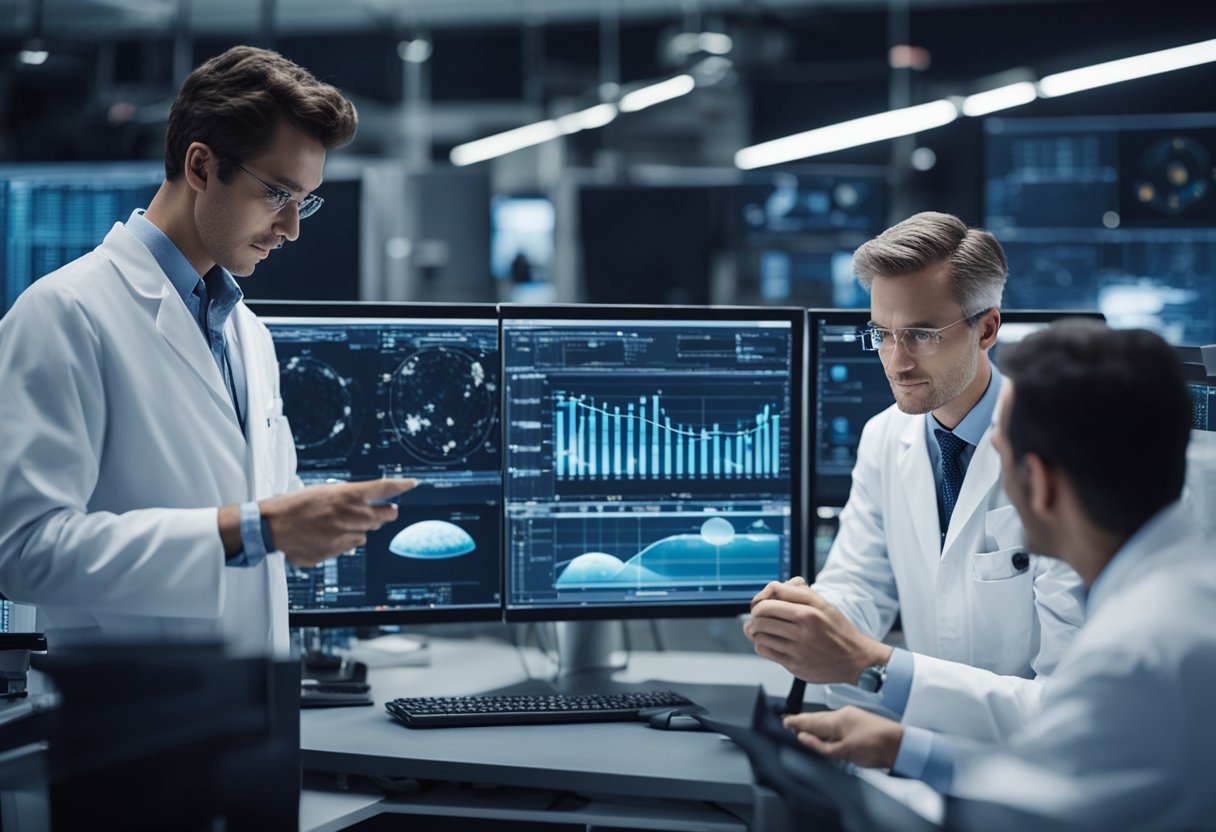
We must acknowledge the profound impact space exploration has had on both science and technology. Our journeys into space have fuelled unparalleled technological advancements, bolstered scientific research contributions, and led to a multitude of spinoff technologies with myriad applications.
Space exploration has been a catalyst for the development of cutting-edge technologies. We often take for granted the complex systems behind satellite communications, which allow for global television broadcasts and GPS navigation. Each launch and mission refines our capabilities, from propulsion systems to the miniaturisation of electronics. The computational requirements for space missions have also accelerated the advancement of high-performance computing systems, indispensable in processing the vast amounts of data we collect.
Our quest beyond Earth’s atmosphere has provided us with a unique vantage point for scientific observation. From telescopes placed in orbit free from atmospheric distortion, like the renowned Hubble Space Telescope, to interplanetary probes gathering data on other celestial bodies, space exploration has expanded our understanding of the universe. These missions yield valuable insights into fundamental physics, cosmology, and planetary science, enriching our scientific research database exponentially.
The technologies developed for space exploration don’t stay in orbit—they enhance our daily lives. Spinoff technologies, originally designed for the rigours of space, have been reimagined for Earth-based applications. For instance, advances in robotics have led to more robust and precise surgical procedures, and innovations in materials developed for spacecraft insulation have improved thermal protection in buildings. Our work in space has also sparked innovation in energy efficiency, water purification, and even sports equipment, demonstrating the wide-reaching influence of space technology development on various industries.
With SpaceVoyageVentures.com, we stand on the brink of a new era where space tourism not only becomes a reality but also paves the way for further technological and scientific achievements. As we delve into the possibilities of space travel for the public, we are also charting the course for future technological developments that may one day become integral to our everyday lives.
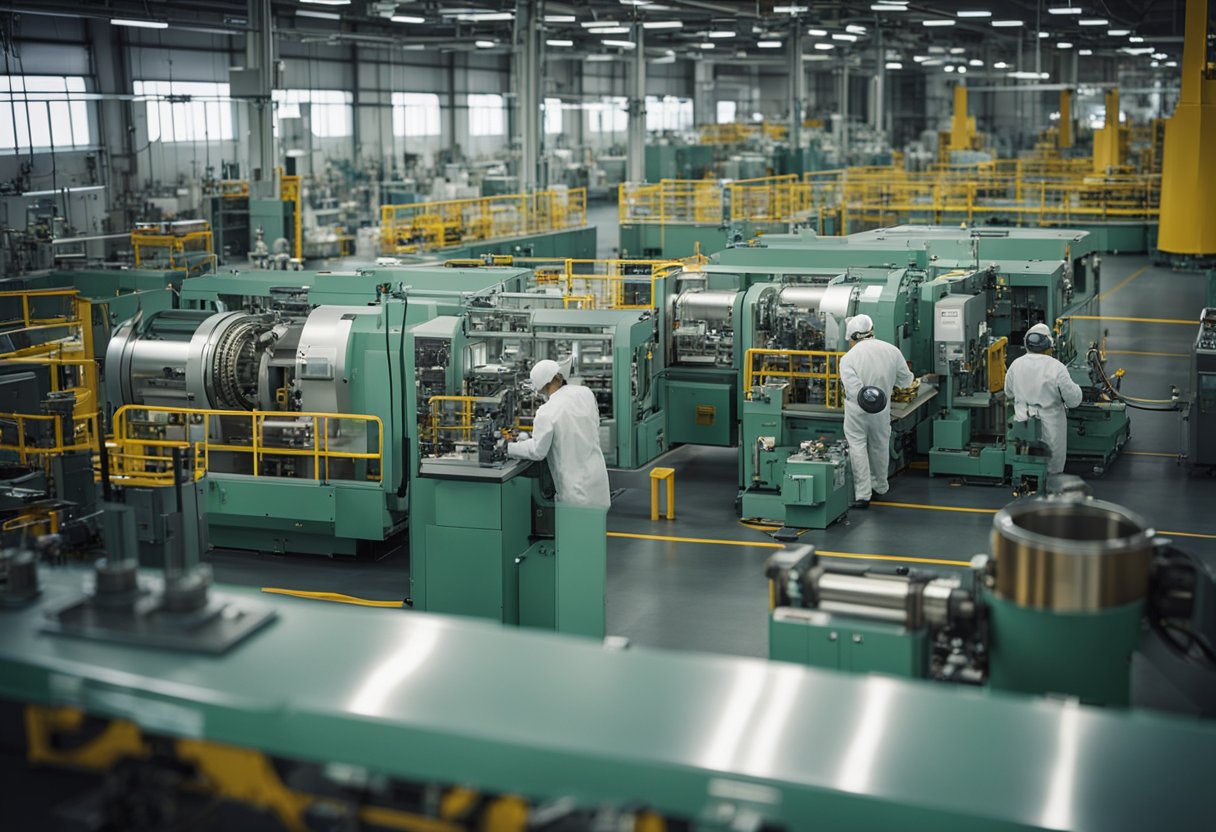
In the realm of space exploration, industrial development and manufacturing are experiencing unprecedented growth, driven by technological advancements and an expanding economic interest in space-related activities.
Through our collaboration with key partners in various sectors, we’ve observed a definitive uptick in related industries such as digital infrastructure and aerospace production. According to a World Economic Forum report, the space economy’s value has surged, illustrating how substantial investment in space technologies can stimulate numerous economic sectors on Earth. Meanwhile, ventures like SpaceVoyageVentures.com offer a glimpse into the burgeoning space tourism industry, marking a new frontier for cross-industry innovation and private-sector involvement.
Our focus on manufacturing within the space sector has led to notable strides in the field. High-tech manufacturing processes are essential for producing the sophisticated components required for space missions. These advancements are not confined to space agencies but ripple across several facets of American industry. A NASA report spotlights efforts to augment the nation’s space technology manufacturing prowess, a move poised to satisfy the escalating workforce demands in the space industrial base.
We can confidently assert that the interdependence between space exploration and industrial growth is strengthening, with manufacturing standing as a pivotal benefactor and driver in this age of space discovery.
In evaluating the profound effects of space exploration, we observe its substantial contribution to job creation and economic stimulation. Space exploration not only cultivates employment across various sectors but also boosts economic activity with significant compensation.
Space exploration has consistently proved itself as a massive job creator. Notably, the global space workforce included approximately 200,000 individuals in 2022, with an expected annual growth rate between 5-10%. These jobs span a vast array of specialties, from engineers and scientists to support staff and administrators, reflecting space exploration’s reach across different career paths. In the U.S., this industry has been instrumental in reinforcing employment in every state, underpinning the nation’s economic fabric.
The influence of space exploration on economic activity is highlighted by the compensations associated with these jobs. In fiscal year 2019, NASA alone generated more than $64.3 billion in total economic output and was responsible for over 312,000 jobs nationwide. These positions tend to offer above-average salaries, investing in key industries that include scientific research and advanced manufacturing. The resultant economic activity spirals into the larger economy, with space-related jobs contributing to an estimated $7 billion in federal, state, and local taxes. This revenue supports public services, undergirding the U.S. economy. Additionally, the advent of space tourism promises to broaden the scope of employment and compensation within the space industry further.
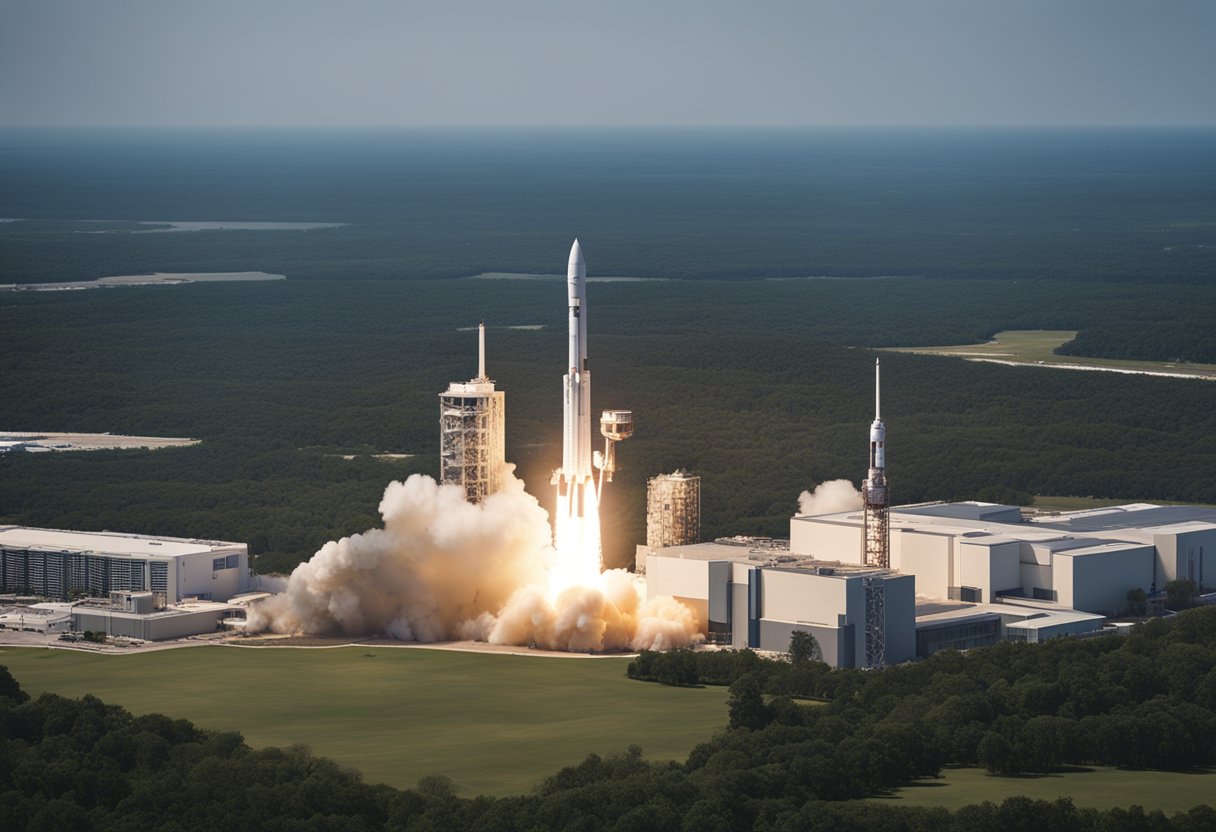
In this section, we will explore the impact of space exploration on education and workforce development, examining how it fosters learning and skills acquisition.
Space exploration stimulates educational programmes, encouraging students and educators alike to focus on subjects that propel industry innovation. For instance, the Marshall Space Flight Centre plays a crucial role in this regard, engaging in various education outreach initiatives. This inspires the next generation of researchers through hands-on experiences and learning opportunities in science, technology, engineering and mathematics (STEM).
To keep pace with the rapidly evolving space industry, workforce development programmes have become essential. These initiatives are designed to enhance the skills of professionals, ensuring that the ever-growing challenges of space exploration are met with a competent and prepared workforce. Training programs often include critical-thinking exercises, problem-solving tasks, and advanced technological education to align with real-world applications.
Remember that our journeys today sow the seeds for the workforce of tomorrow. As we push the boundaries of our capabilities in space, we’re also expanding the horizons for development within educational frameworks and professional advancements.
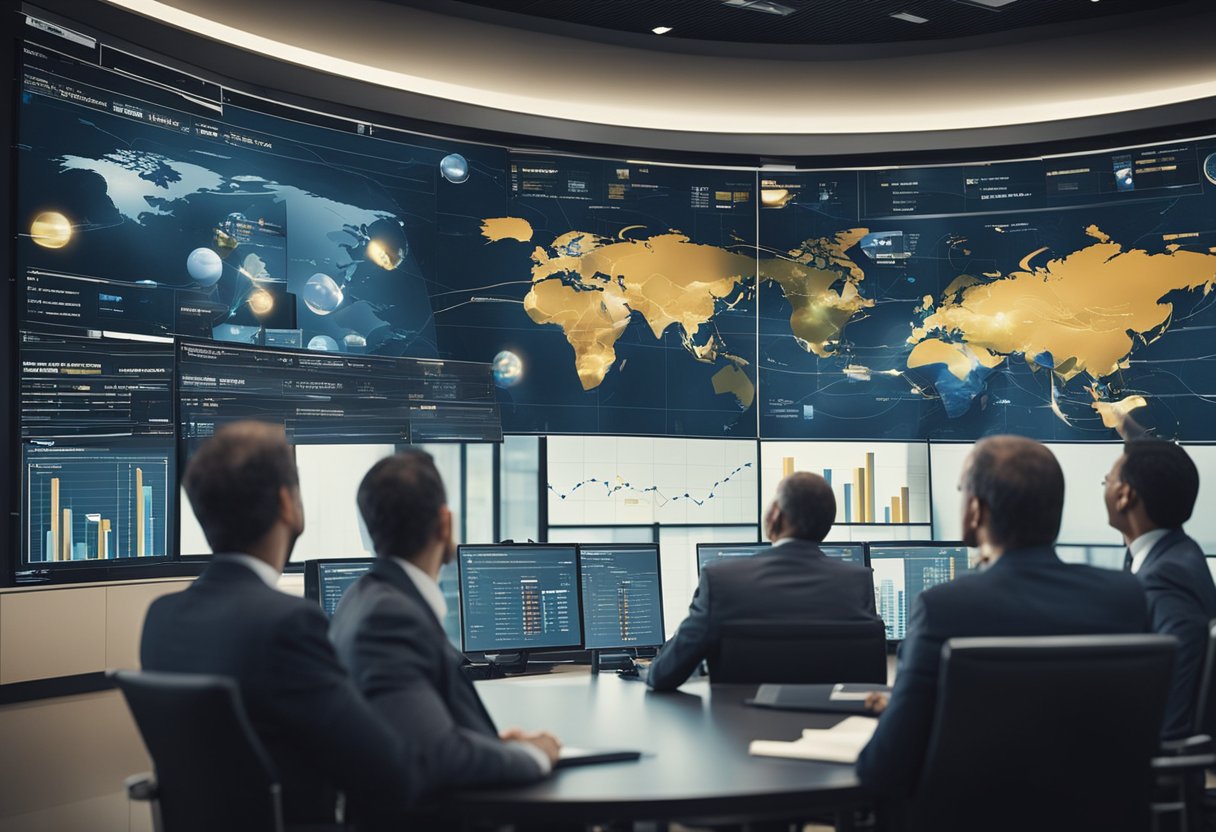
Policy and governance play critical roles in shaping the economic impact of space exploration. These mechanisms steer the direction and funding of space-related activities and are essential for achieving strategic goals within the space sector.
We understand that the federal budget is a vital instrument for funding governmental space agencies like NASA. In the federal budget, specific allocations are designated for civil, commercial, and national security space sectors. Our policymakers must balance these investments to spur economic growth, innovation, and maintain global competitiveness. The Bureau of Economic Analysis (BEA) tracks how these investments in space exploration translate into economic benefits for our nation.
Our space exploration endeavours are also governed by a mix of national policies and international agreements. These policies guide our commercial ventures and international collaborations, such as the commitments made in the Artemis Accords. These agreements ensure sustainable and peaceful exploration and are critical in shaping the rules for emerging markets, such as SpaceVoyageVentures.com‘s focus on space tourism. We recognise that international cooperation and adherence to these policies promote a safe and equitable environment for space exploration.
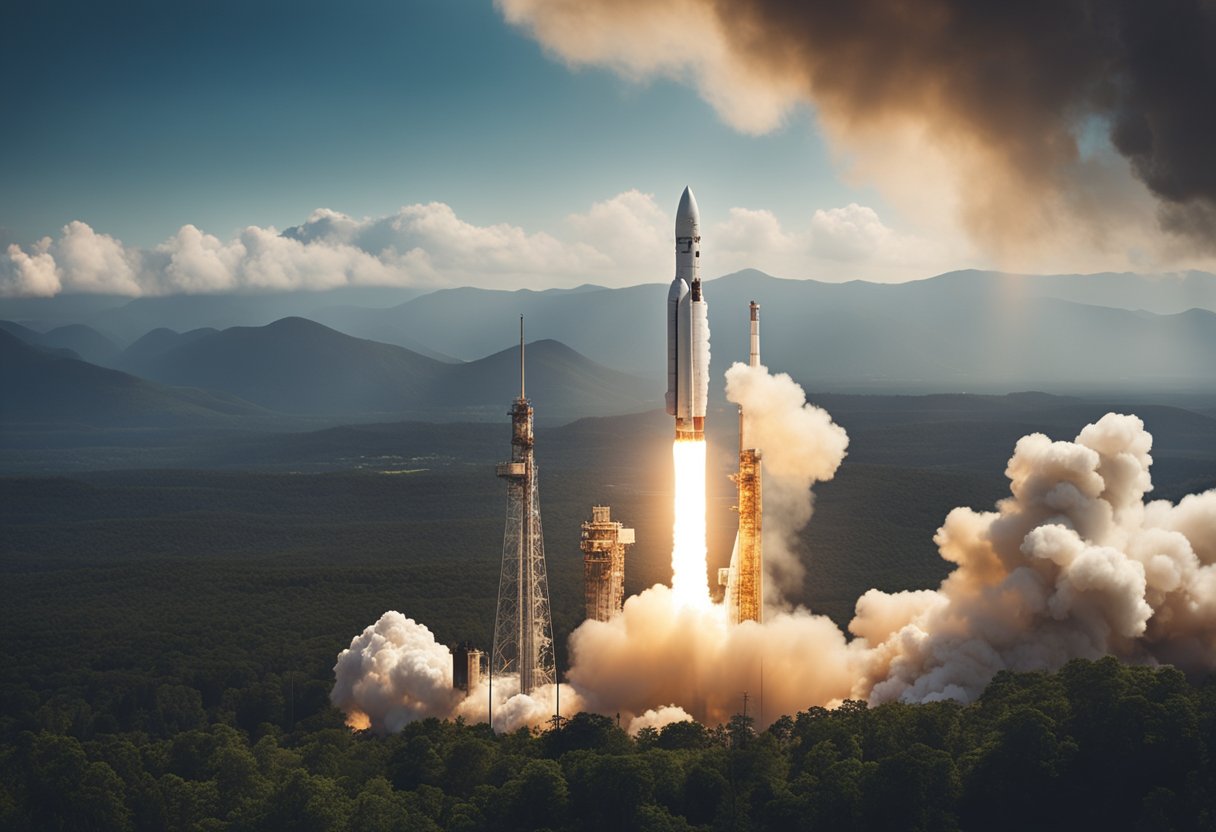
As we delve into the intricacies of space exploration, it is imperative that we address both its potential environmental impacts on Earth and the sustainable practices necessary for operations in space.
Space exploration provides us with a unique vantage point to monitor the Earth’s climate and gauge the severity of climate change. By deploying satellites equipped with advanced sensors, we’re able to capture crucial data on atmospheric conditions, deforestation, and polar ice melt. This wealth of information assists scientists in developing more precise climate models and forecasts. Indeed, our continuous investment in space technologies has become instrumental in advancing climate change research.
Acknowledging the finite nature of our home planet, sustainable practices in space are not just optional but a necessity. Our actions must reflect a commitment to limiting the generation of space debris, which can have detrimental effects, such as light pollution and potential hazards from satellite re-entries. For initiatives like SpaceVoyageVentures.com that eye the burgeoning space tourism sector, incorporating a sustainability-first approach is key to ensuring that the excitement of exploring new frontiers doesn’t come at a cost to our environment or the future of outer space activities.
In this ever-expanding age of space exploration, the boundary between governmental and private space initiatives is blurring. We’re witnessing a significant uptick in joint ventures between private entities and public agencies, reaching from satellite launches to manned spaceflight. Industry growth is testament to the value of these cooperative efforts.
The formation of private and public partnerships is a pivotal feature in today’s aerospace climate. We see a collaboration, for instance, between governments and companies benefit the International Space Station (ISS), with commercial services providing resupply missions and development of modules. The emergence of these partnerships invites a more dynamic approach to space commerce, bolstering investors’ confidence and opening up novel avenues for space exploration. Private enterprises bring innovation and efficiency to the table, while public agencies offer regulatory frameworks and substantial infrastructure.
Space companies are now more prominent than ever. Firms, once new entrants, are now household names steering cutting-edge initiatives in space technology and exploration, like reusable launch systems and prospective space tourism. Our tracking of companies across the globe reflects a prevalent surge in the sector. Investors are eagerly participating, supporting a landscape featuring players from various sizes and specialisms. With ventures such as SpaceVoyageVentures.com, the future for space tourism is not simply a dream; it’s becoming a tangible reality, with potential trips already on the horizon. These companies are reshaping our understanding of what’s possible, taking us towards a future where the cosmos is within our reach.
In this section, we explore how space exploration elevates international stature and drives technological supremacy, positioning nations at the forefront of global leadership.
Our participation in the International Space Station (ISS) is a testament to the power of international collaboration. The ISS serves as a model for global partnership, with the U.S. and other nations jointly conducting research and sharing advancements. Such multinational efforts enhance diplomatic relations and set the framework for future international agreements on the use of outer space.
Leading the charge in space exploration propels us into a position of technological leadership. The advancements we’ve achieved through endeavours in the space sector not only cement our status but also pave the way for industry growth and innovation. For instance, the U.S. has continually demonstrated leadership in space technology, inspiring other nations to reach for similar heights.
In aligning with agencies such as NASA and the European Space Agency, we bolster our technological prowess and contribute to a shared vision of progress and discovery, solidifying our standing on the world stage.
As we turn our gaze to the cosmos, the future of space exploration is poised to unlock unprecedented opportunities. Both governmental and private sector initiatives are charting courses that will extend humanity’s presence beyond Earth, promising not only scientific advancements but also economic benefits and new industries.
The Moon to Mars Initiative is a bold endeavour by national space agencies to establish a sustainable human presence on the Moon and eventually transport astronauts to Mars. This involves constructing a new space station in lunar orbit, known as the Lunar Gateway, which will serve as a staging point for lunar surface expeditions and future Mars missions. By focusing on the Moon to Mars missions, we enable a new era of exploration that lays the groundwork for the next giant leap in space travel, ensuring significant development in life support systems, including ventilators, and other essential technologies.
The landscape of space-related industries is rapidly evolving, where innovative trends are beginning to shape long-term prospects:
Commercial Ventures: Companies are venturing into space tourism, aiming to offer experiences such as suborbital flights. SpaceVoyageVentures.com provides insights into near-future space tourism opportunities that are shaping up to become a significant industry.
Infrastructure Development: There are continuous efforts to develop infrastructure in space, such as satellite networks for global internet coverage, that are already generating considerable economic value.
Resource Utilisation: Looking further ahead, mining the Moon and asteroids for water and minerals remains a compelling possibility that could support both space exploration and Earth’s economy.
In this section, we address key inquiries around the economic impact of space exploration, highlighting its diverse benefits and considerations.
The satellite industry promotes economic growth by enhancing communication, enabling precise navigation and timing, and supporting weather forecasting. These applications drive innovation in various sectors including agriculture, transportation, and defence.
Space exploration stimulates economic development by fostering technological advances and scientific research. This leads to new products and services, job creation, and a ripple effect that benefits multiple industries.
Despite its benefits, space exploration can have negative economic repercussions including high costs of missions, potential environmental hazards, and debris that could damage existing satellites, impacting services and related economies.
For national economies, space exploration offers strategic advantages such as fostering domestic high-tech industries, boosting education in science, technology, engineering, and maths (STEM) fields, and positioning countries as leaders in the global arena.
The advent of space tourism heralds a new niche market that introduces revenue streams, spurs innovation in space travel, and holds promise for significant economic contributions reminiscent of the early days of commercial air travel.
NASA plays a central role in stimulating economic activity through its space missions which catalyse innovation, partnerships with private companies, and development of technologies with commercial applications across many sectors.